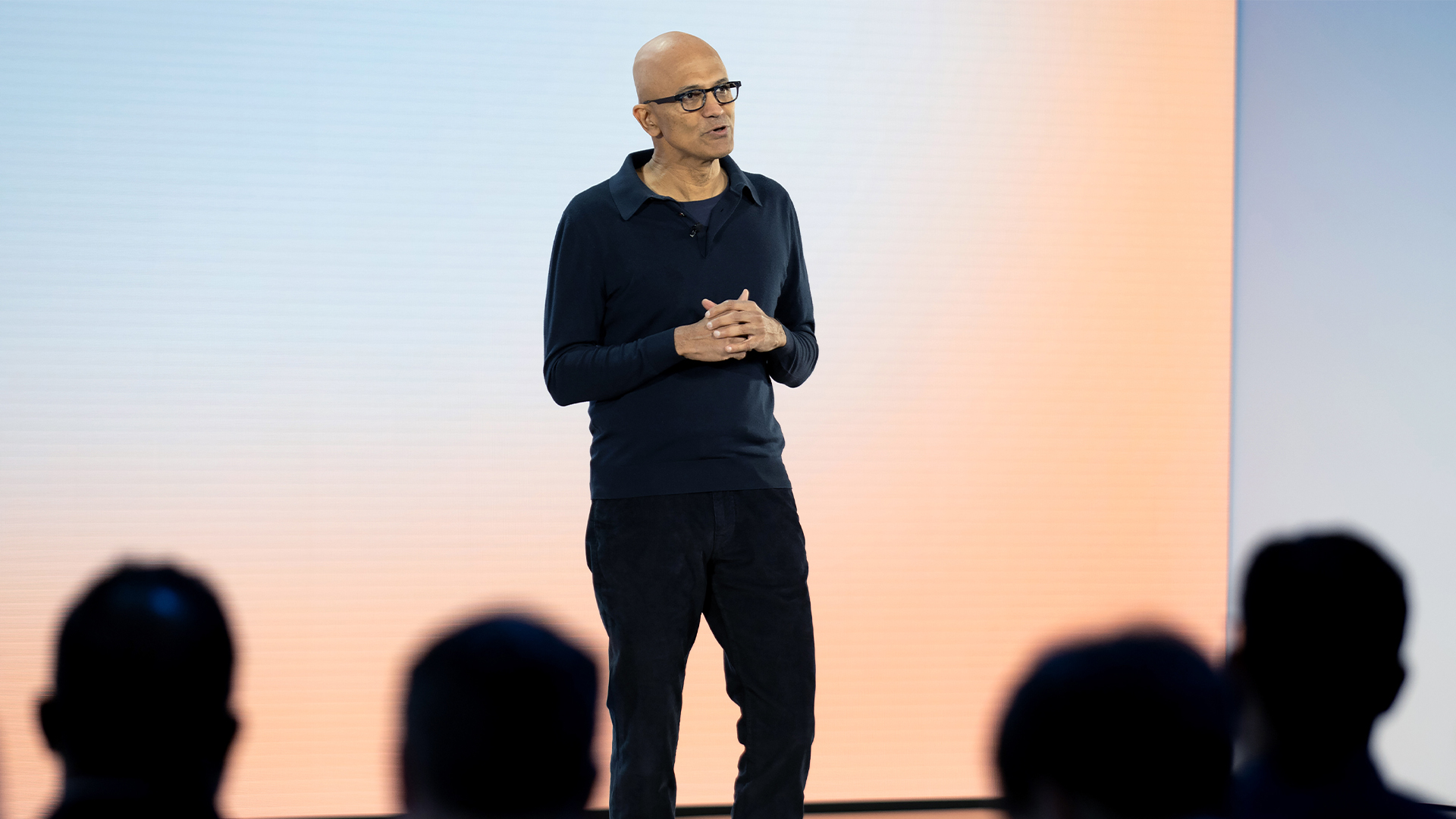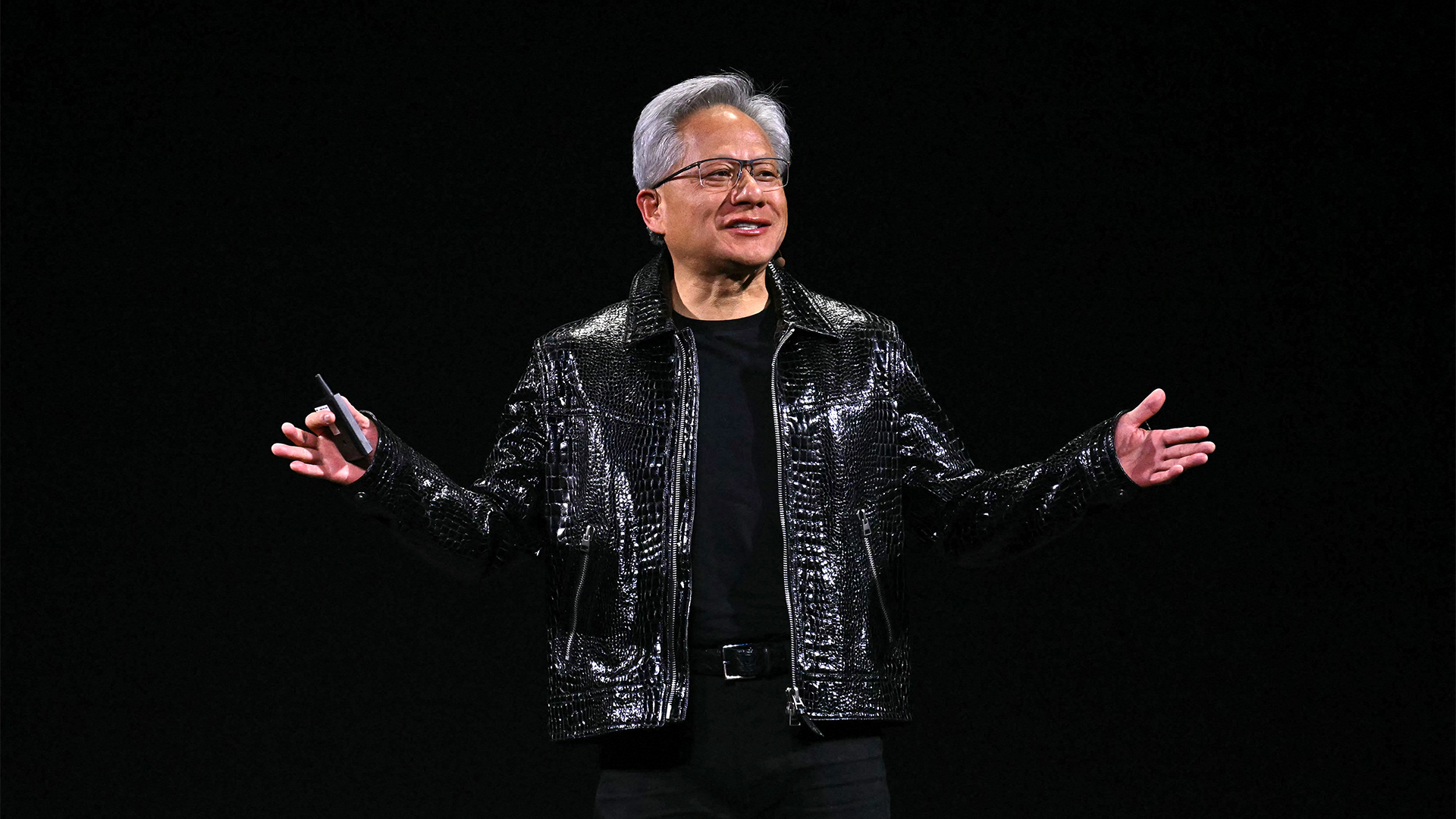What are the benefits of quantum computing?
This emerging technology promises to revolutionise computing, but we're some way from general availability


Quantum computing. The term sounds almost mythical, almost the stuff of science fiction. And what it describes is as revolutionary as the invention of the computer itself. With apologies to the sheer technical complexity of how quantum computing works, here's a basic definition.
Standard computing is binary. The bits that it manipulates can be in one of two states on or off, yes or no, up or down, that kind of thing. Quantum computing works with quantum bits (or qubits) which can be in 'superpositions of states', which is to say they can be in many different states not just binary at the same time.
The potential is for massively faster, massively more efficient calculations, and that's handy because we are generating more data now than ever before, need to analyse that data in more complex ways, and get results out faster.
But hold up a second. Does this mean that everything from weather forecasting to sending emails round the internet will achieve a giant speed and power leap thanks to quantum computing? And will your next laptop be quantum? The answers to those questions are no, and no but that's not the end of the story. Like quantum computing itself, the answer is more complex than that.
What is quantum computing for?
We spoke to Mark Potter, SVP and CTO of Hewlett Packard Enterprise and director of Hewlett Packard Labs, an organisation that's at the forefront of quantum research, but is also seeking to temper expectations of the technology.
"Immediate problems that we are currently being overwhelmed by, such as mainstream enterprise analytics Big Data and AI are not going to be solved by quantum computing," explains Potter. "Quantum computing, by its very nature, is not going to be useful for real customer problems involving Big Data."
This is primarily due to the massive volumes of data required to power AI; quantum computers simply can't process such data sets in bulk. That doesn't mean they're useless, however just that they will make their impact felt initially in more niche areas.
Get the ITPro daily newsletter
Sign up today and you will receive a free copy of our Future Focus 2025 report - the leading guidance on AI, cybersecurity and other IT challenges as per 700+ senior executives
"Quantum computing will have a revolutionary impact on our understanding of quantum systems and will be good at solving intrinsically quantum problems," says Potter. "For example, it can help us solve physics problems where quantum mechanics and the interrelation of materials or properties are important. At an atomic level, quantum computing simulates nature and therefore could help us find new materials or identify new chemical compounds for drug discovery. It holds the promise of being able to take on problems that could take a normal computer billions of years to solve and do it in seconds."
When will quantum computing come on the market?
As to the question of when quantum computing will become mainstream, Potter explains that there are a number of hurdles to overcome before it's able to see practical application, most notably its ability to produce reliable and repeatable results.
What's more likely to happen is that we'll see a number of "quantum-like" technologies emerge over the next few years. One such technology is Fujitsu's Digital Annealer, described as "the world's first quantum-inspired technology".
Quantum annealing is when the superposition of a qubit is collapsed, causing it to become either a binary 1 or 0. Normally the odds of a qubit becoming a 1 or a 0 are 50/50, but certain processes can be applied to make it more likely it will become one or the other.
Yves De Beauregard, EMEIA head of digital business solutions at Fujitsu Global tells IT Pro the company's Digital Annealer is "inspired by the theory of quantum annealing" and claims that "companies across the globe are already using it".
When it comes to full quantum computing, De Beauregard says that ultimately it is achievable "but we're years away from realising true quantum capabilities for real world problems".
"It's not completely impossible ... that it may become a reality in the next five years, but looking at where we currently stand in the innovation lifecycle, it will take significant investment and technology breakthroughs to make this happen."
Despite many large technology companies heralding quantum as the next major breakthrough in computing, their investments suggest there's a degree of disagreement as to how we will get there.
"Even the big companies are betting on different technologies, which gives a good idea of how much uncertainty there is about which technology to bet on, and if there will be only one standard," explains Syed Adil Rab, quantum computing lead at Cogisen.
"Today we can already access some of IBM's quantum computers through the cloud for high level scientific research and within the next year they will make a much larger and more powerful quantum computer (even though not perfect) available to the public. Depending on the results the scientific community achieves with these machines, we'll see the amount of investment (public and private) change and it will determine when we will have a large scale commercial distribution."
He adds that we're unlikely to see anything close to a universal quantum computer for at least five years, and even if that happened there wouldn't be widespread market adoption until we're well into the 2030s.
Like HPE's Mark Potter, Syed Adil Rab thinks materials science and biochemistry will be important beneficiaries of quantum computing. But he is very open minded about the possibilities of the tech more broadly.
"It is hard to see the business case for the entertainment and gaming industry at this point, because there does not appear to be a demand for the vast processing power quantum computing can offer," he explains.
"But who knows what we will see in the future? It's like asking electrical engineers and computer scientists back in the 1950s whether it would be possible to have services like Netflix and multiplayer online role-playing games. That is the exciting opportunity quantum computing presents. We are only at the start of discovering its potential."

Sandra Vogel is a freelance journalist with decades of experience in long-form and explainer content, research papers, case studies, white papers, blogs, books, and hardware reviews. She has contributed to ZDNet, national newspapers and many of the best known technology web sites.
At ITPro, Sandra has contributed articles on artificial intelligence (AI), measures that can be taken to cope with inflation, the telecoms industry, risk management, and C-suite strategies. In the past, Sandra also contributed handset reviews for ITPro and has written for the brand for more than 13 years in total.
-
 The Race Is On for Higher Ed to Adapt: Equity in Hyflex Learning
The Race Is On for Higher Ed to Adapt: Equity in Hyflex LearningBy ITPro
-
 Google faces 'first of its kind' class action for search ads overcharging in UK
Google faces 'first of its kind' class action for search ads overcharging in UKNews Google faces a "first of its kind" £5 billion lawsuit in the UK over accusations it has a monopoly in digital advertising that allows it to overcharge customers.
By Nicole Kobie
-
 The UK government wants quantum technology out of the lab and in the hands of enterprises
The UK government wants quantum technology out of the lab and in the hands of enterprisesNews The UK government has unveiled plans to invest £121 million in quantum computing projects in an effort to drive real-world applications and adoption rates.
By Emma Woollacott
-
 ‘This is the first event in history where a company CEO invites all of the guests to explain why he was wrong’: Jensen Huang changes his tune on quantum computing after January stock shock
‘This is the first event in history where a company CEO invites all of the guests to explain why he was wrong’: Jensen Huang changes his tune on quantum computing after January stock shockNews Nvidia CEO Jensen Huang has stepped back from his prediction that practical quantum computing applications are decades away following comments that sent stocks spiraling in January.
By Nicole Kobie
-
 ‘We’ve created an entirely new state of matter’: Satya Nadella hails Microsoft’s 'Majorana' quantum chip breakthrough
‘We’ve created an entirely new state of matter’: Satya Nadella hails Microsoft’s 'Majorana' quantum chip breakthroughNews Microsoft has unveiled a new chip it says could deliver quantum computers with real-world applications in ‘years, not decades'.
By Emma Woollacott
-
 QuEra Computing just raised $230 million to pioneer “fault-tolerant” quantum computing – and it even got Google’s seal of approval
QuEra Computing just raised $230 million to pioneer “fault-tolerant” quantum computing – and it even got Google’s seal of approvalNews QuEra Computing has raised $230 million in funding to drive development of 'fault tolerant' quantum computers, receiving backing from Google and SoftBank.
By Ross Kelly
-
 We’re optimistic that within five years we’ll see real-world applications’: Google thinks it’s on the cusp of delivering on its quantum computing dream – even if Jensen Huang isn't so sure
We’re optimistic that within five years we’ll see real-world applications’: Google thinks it’s on the cusp of delivering on its quantum computing dream – even if Jensen Huang isn't so sureNews Nvidia CEO Jensen Huang sent shares in quantum computing firms tumbling last month after making comments on the near-term viability of the technology.
By Ross Kelly
-
 Why quantum computing might be much closer to becoming a reality than we think
Why quantum computing might be much closer to becoming a reality than we thinkIn-depth Quantum computing has always been ‘just a few years away’, but the industry’s latest developments show we could be within touching distance of a breakthrough
By Richard Speed
-
 Dell CTO: AI is nothing compared to the oncoming quantum storm
Dell CTO: AI is nothing compared to the oncoming quantum stormInterview Dell CTO John Roese says it's 'disturbing' how badly prepared businesses are to make the most of AI, with poorly curated data fueling current models
By Rory Bathgate
-
 What is exascale computing?
What is exascale computing?Explainer Exascale computing marks a step change in computing performance and could have benefits across a range of industries
By Ross Kelly